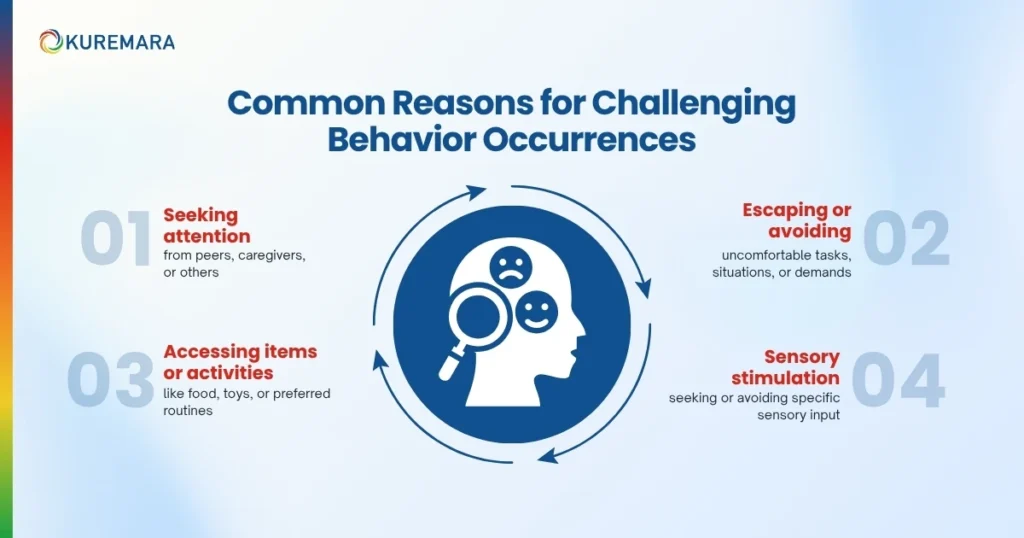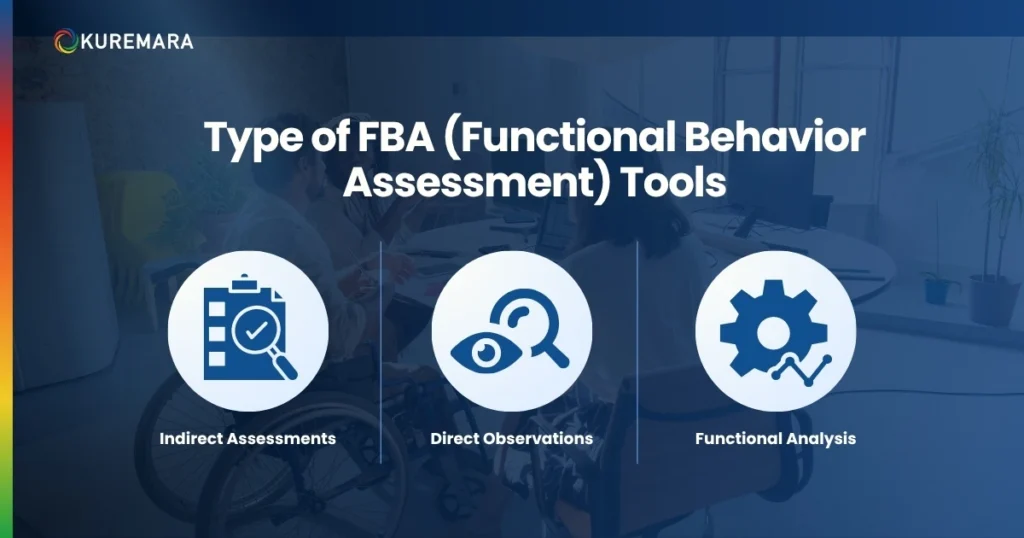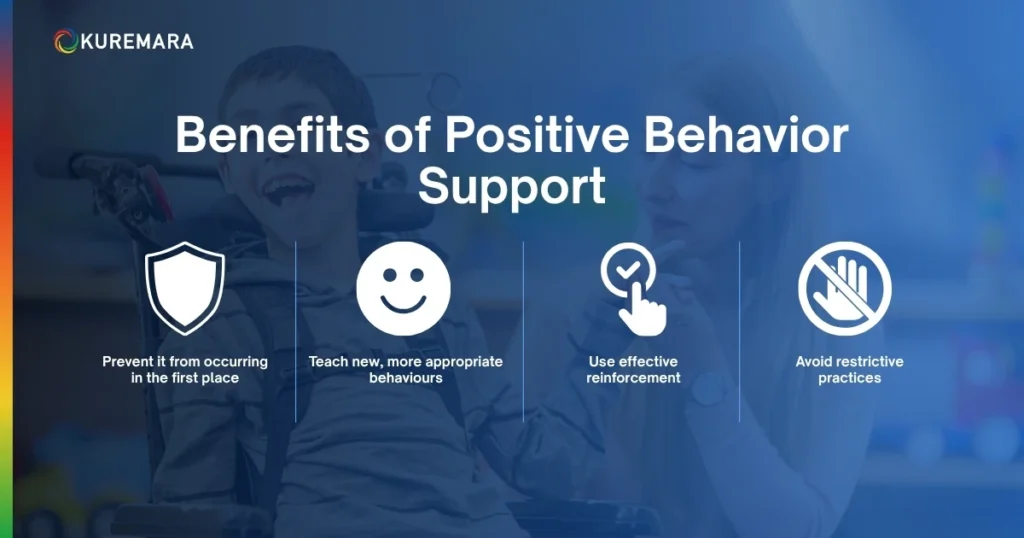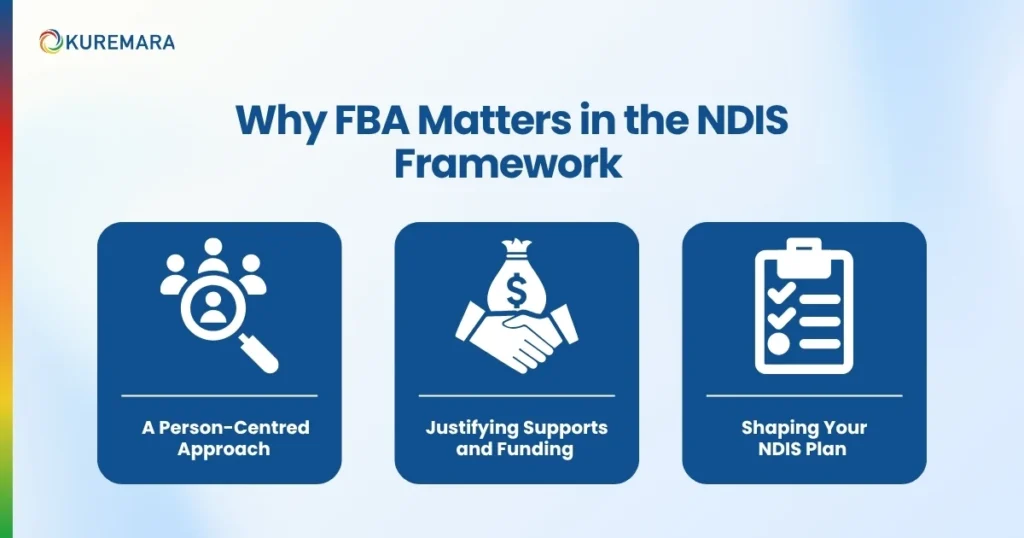Building Support Around Behaviour: Why Understanding Matters
Challenging behaviours can be one of the most distressing and complex aspects of supporting someone with a disability. Whether it’s aggression, self-injury, or withdrawal, these behaviours often signal unmet needs, discomfort, or difficulty in communication.
Rather than managing the behaviour at face value, it’s essential to dig deeper. Functional Behaviour Assessment (FBA) is a powerful, evidence-based approach used to understand the “why” behind challenging behaviours. It offers a structured way to explore the underlying causes, helping individuals receive support that truly meets their needs.
In the context of the National Disability Insurance Scheme (NDIS), FBA plays a crucial role in building person-centred support plans. It forms the foundation for Positive Behaviour Support (PBS) and ensures that interventions are not only effective but also respectful, inclusive, and aligned with an individual’s goals and identity.
This guide will help you understand:
- What a functional behaviour assessment involves
- How it’s conducted
- Its connection to positive behaviour support
- Why it’s vital within the NDIS framework
- How Kuremara supports individuals and families through the process
What Does a Functional Behaviour Assessment Really Mean?
Looking Beyond the Behaviour
A Functional Behaviour Assessment is a systematic and compassionate process that seeks to understand the function or purpose of a person’s behaviour. Rather than focusing on what the behaviour looks like, an FBA aims to understand what the behaviour is communicating and why it happens.
In other words, FBA is not about “fixing” someone, but about uncovering what they are trying to express through their actions and identifying more supportive ways to meet those needs.
Common Reasons Why Behaviours Occur

Challenging behaviours typically serve a purpose, and these purposes can be grouped into four common categories:
- Seeking attention – from peers, caregivers, or others
- Escaping or avoiding – uncomfortable tasks, situations, or demands
- Accessing items or activities – like food, toys, or preferred routines
- Sensory stimulation – seeking or avoiding specific sensory input
By identifying the function behind a behaviour, we can better tailor support strategies that are compassionate, appropriate, and sustainable.
How is a Functional Behaviour Assessment Conducted?
Gathering the Right Information
A high-quality FBA is built on data from multiple sources. It typically involves three main types of assessment tools:

1. Indirect Assessments
This includes interviews, checklists, and rating scales completed by people who know the individual well such as family members, teachers, carers, or therapists. These tools help paint a picture of the person’s routines, triggers, and typical responses.
2. Direct Observations
Professionals observe the behaviour in real-life settings and document the Antecedents (what happens before), Behaviour (what the person does), and Consequences (what happens after) commonly known as ABC data. These observations are crucial to understanding patterns and context.
3. Functional Analysis (where applicable)
In some cases, professionals may use a more structured approach involving controlled environments to test hypotheses about what triggers and maintains a behaviour. While this is not always necessary or appropriate, it can offer deeper insights in complex cases.
From Data to Insight
After data is collected, behaviour specialists analyse the patterns to form a hypothesis about the function of the behaviour. This hypothesis becomes the starting point for developing an effective support plan that addresses the root cause, not just the surface behaviour.
How FBA Forms the Foundation of Positive Behaviour Support
* From Understanding to Empowering
Positive Behaviour Support (PBS) is an approach that focuses on improving a person’s quality of life by promoting positive behaviours and reducing challenging ones. It is firmly grounded in the insights gained from an FBA.

When we know why a behaviour is happening, we can:
-
- Prevent it from occurring in the first place using proactive strategies
-
- Teach new, more appropriate behaviours that meet the same need
-
- Use effective reinforcement to encourage positive change
-
- Avoid restrictive practices, ensuring the person’s rights and dignity are respected
* Creating Real, Lasting Change
PBS informed by a thorough FBA doesn’t just reduce challenging behaviour it supports people to thrive. It empowers individuals to express themselves more effectively, experience more positive relationships, and engage more fully in their homes, schools, workplaces, and communities.
Why FBA Matters in the NDIS Framework

A. Person-Centred Approach
The NDIS is built around choice, control, and tailored support, making FBA a perfect fit within the system. FBA helps ensure that interventions align with the participant’s lived experience, culture, environment, and aspirations.
B. Justifying Supports and Funding
A well-conducted FBA offers evidence to justify the inclusion of specific supports in an NDIS plan, such as therapy, support workers, assistive technology, or PBS practitioners. This documentation helps planners and decision-makers understand the importance of these supports in improving the participants’ outcomes.
C. Shaping Your NDIS Plan
The findings from an FBA are often integrated into the participant’s NDIS plan under:
-
-
- Improved Relationships (for behaviour support)
-
-
-
- Improved Daily Living (for therapeutic interventions)
-
-
-
- Support Coordination (for plan implementation)
-
In some cases, an FBA may be required before a Comprehensive Behaviour Support Plan is approved by the NDIS Quality and Safeguards Commission.
Kuremara’s Commitment to Thoughtful Behaviour Support
At Kuremara, we believe that behaviour is a form of communication and understanding it is key to unlocking greater independence, inclusion, and joy.
What Makes Our Approach Unique?
We approach FBA with a holistic, inclusive, and person-first philosophy, ensuring that every individual is seen, heard, and supported in a way that reflects their values and community.
Our approach emphasises:
-
- Cultural sensitivity – tailoring support to reflect each person’s background, identity, and lived experience
-
- Collaboration with families and communities – because meaningful support is built together, not in isolation
-
- Empowerment of participants – supporting individuals to take the lead in their own lives and decision-making
-
- Sustainability – we don’t just aim for short-term change; we design strategies that last.
Our team includes skilled and compassionate professionals who work closely with you to conduct FBAs, create PBS plans, and implement supports that align with your NDIS goals.
Bringing it All Together
Understanding behaviour isn’t just about managing challenges, it’s about recognising communication, supporting growth, and creating a better quality of life.
A Functional Behaviour Assessment, when done well, becomes the foundation for positive and lasting change. Within the NDIS, it helps ensure that every person receives the support that is truly right for them delivered in a way that upholds their dignity, values, and goals.
At Kuremara, we’re proud to walk alongside individuals and families as they navigate this journey, offering the tools, guidance, and heart to help them thrive.
Let’s Take the Next Step Together
Are you ready to unlock the power of understanding and transform behaviour into meaningful progress?
 care@kuremara.com.au
care@kuremara.com.au






